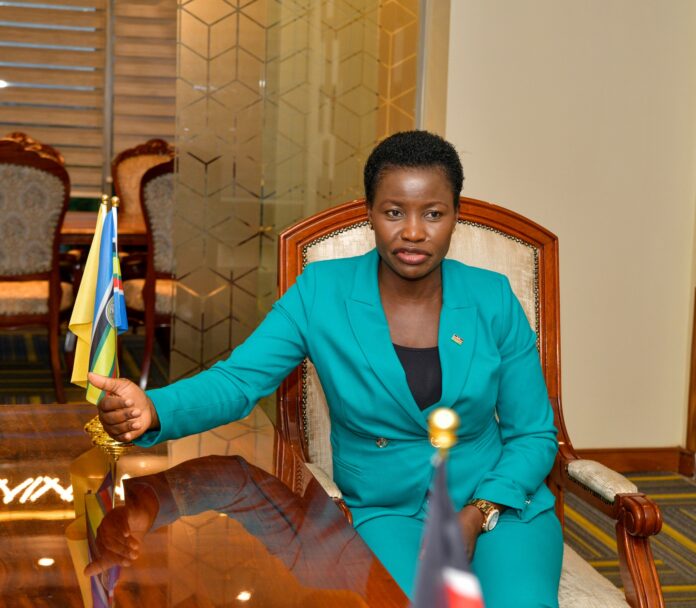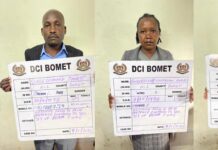State Department for MSMEs Development Principal Secretary Susan Mang’eni has clarified why university and college students are not eligible for the recently launched NYOTA Fund.
Speaking on Tuesday, October 14, she explained that the program is designed to specifically uplift Kenyans at the very bottom of the economic pyramid.
Mang’eni said the fund’s target group excludes those with tertiary education as it focuses on empowering individuals and small enterprises that lack formal education and access to financing.
“The NYOTA Fund is targeting those at the very bottom of the economic pyramid, but we are also working on other initiatives that will target college and university students. If you have a tertiary education, you can’t benefit from the NYOTA Fund,” she said.
However, Mang’eni noted that the government recognizes the need to create opportunities for those pursuing higher education, and assured that other programs are already in motion to address their needs.
“However, we have other initiatives, for example, under my ministry, we have the Kenya Jobs Economic Transformation program, which is creating more opportunities for college and university students,” she added.
The NYOTA Project, a five-year initiative aimed at addressing youth unemployment and promoting sustainable economic empowerment, was launched on Monday, October 8.
NYOTA focuses on expanding income-generating opportunities, fostering savings, and nurturing entrepreneurship among young Kenyans.
Through the programme, the government aims to empower youth as innovators and contributors to national development and economic resilience.
The project targets 820,000 vulnerable youth across all 47 counties, offering them a chance to gain employability skills, business support, and access to financial services.
To qualify, applicants must meet specific criteria: they should be between 18 and 29 years old (up to 35 for Persons with Disabilities), have a maximum education level of Form Four or below, and currently be unemployed, underemployed, or engaged in low-income work.
Importantly, participation in the NYOTA Project is entirely free; applicants are not required to pay any fees or service charges to enroll.
How to apply for NYOTA Program;
- Dial *254# on your mobile phone.
- Select ‘Apply for NYOTA Project’ from the main menu.
- Choose ‘Select a Track’
- Select your preferred intervention: Business Support (On-the-Job Training), On-the-Job Experience (Internship), or Learning & Practice.
Applicants are then required to provide key details such as their education level, disability status, county of residence, and employment situation.
Upon submission, a confirmation message is sent to acknowledge successful registration.
If an applicant is not selected for one intervention, they can still be considered for another; however, no individual can benefit from more than one intervention simultaneously.
Future application windows may also be opened and will be announced through the official NYOTA website and social media channels, ensuring equal opportunity for all interested youth.
Beneficiaries chosen for the Business Support intervention will undergo an Entrepreneurship Aptitude Test (EAT) to assess their entrepreneurial readiness and determine the appropriate level of support.
Those who pass will participate in a four-day business training programme before receiving Ksh50,000 in start-up capital, disbursed in two equal installments of Ksh25,000.
Attendance and completion of all required training and mentorship sessions are mandatory before funds are released.
Participants in the On-the-Job Experience (OJE) or Recognition of Prior Learning (RPL) programmes will receive a nationally recognized certificate upon completion.
Through the NSSF’s Haba Haba Savings Scheme, all selected NYOTA beneficiaries are automatically registered as members and assigned a member number.
This initiative encourages long-term savings by allowing access to 30% of the savings after one year, while the remaining amount is secured for future needs.
Moreover, NSSF contributions made through this scheme are tax-deductible up to a limit of Ksh30,000 per month, providing an additional financial incentive for young savers.



















